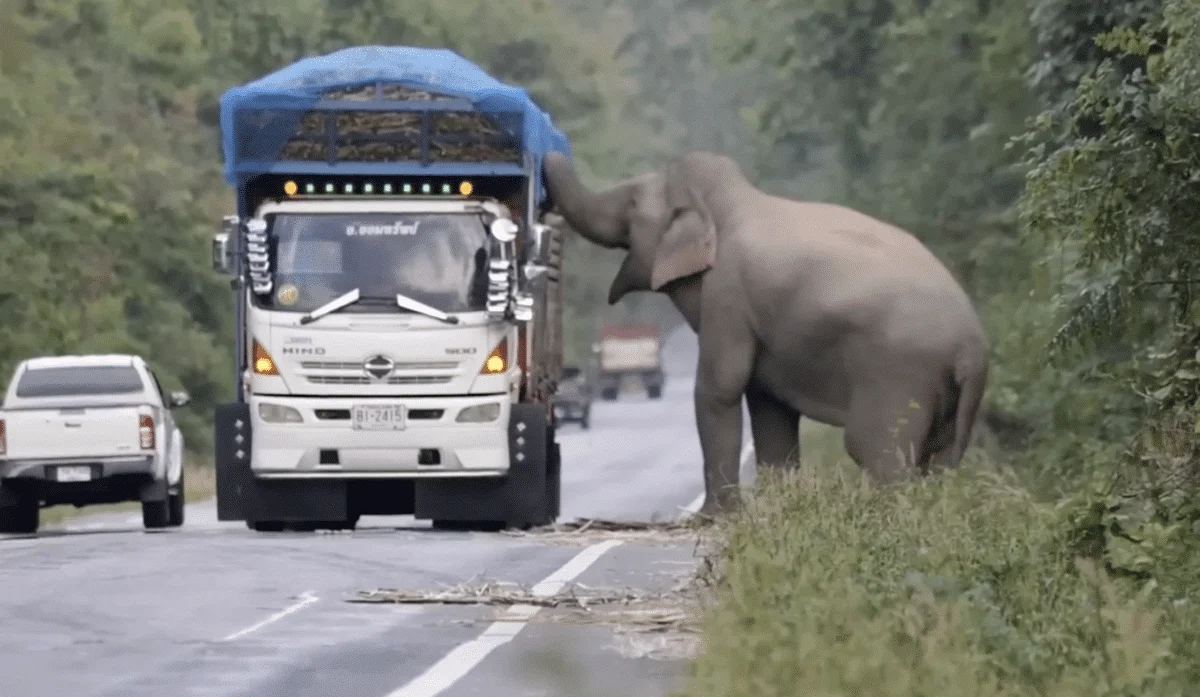This clever and sneaky elephant stops a truck to steal its favorite snack: sugarcane, proving their incredible intelligence and adaptability.
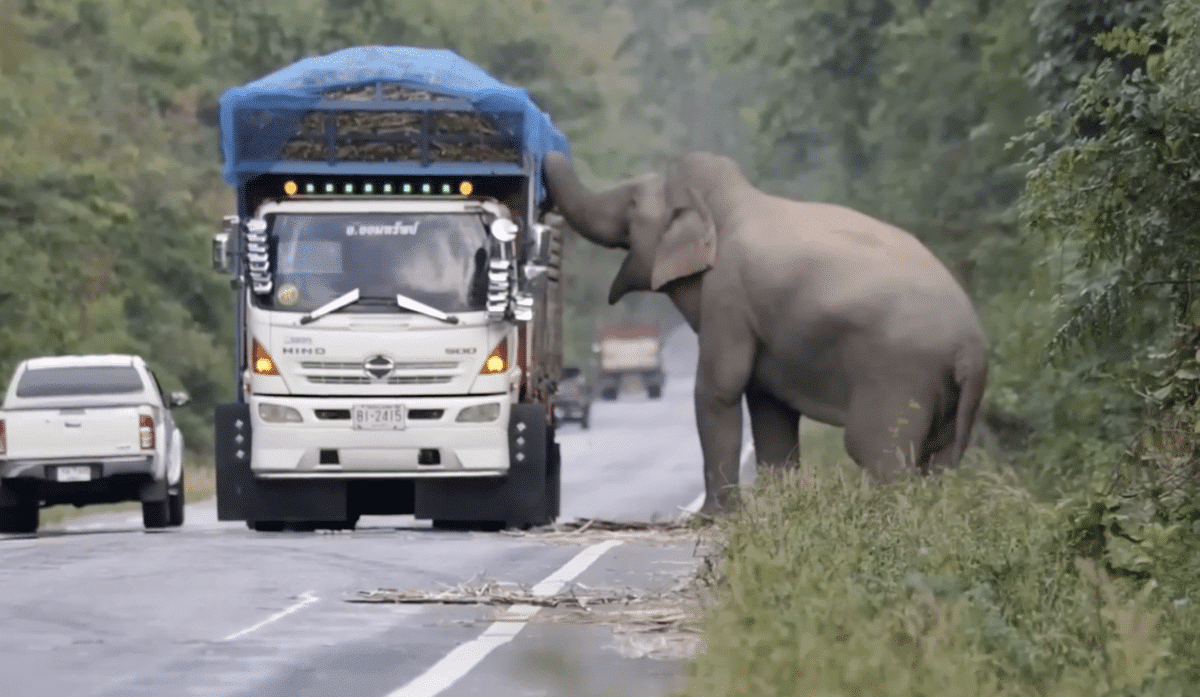
Elephants, the gentle giants of the animal kingdom, have long fascinated humans with their intelligence and behavior.
Among the many intriguing aspects of these majestic creatures is their distinct affinity for sugarcane. This preference, while seemingly innocuous, can actually pose real dangers to communities that cultivate sugarcane.
Their affinity for sugarcane is perfectly captured in a video where an elephant steals it from a truck. This impressive maneuver is also yet another proof of their almost human-like intelligence.
Join us as we explore why elephants have such an affinityfor sugarcane, the challenges this poses to farmers, and the intelligence displayed by elephants!
Key Points
- A sneaky elephant stops a truck and steals sugarcane.
- Elephants like sugarcane for its high sugar content, providing energy and satisfying their sweet tooth.
- Their affinity for sugarcane poses challenges to farmers, leading to crop destruction and human-wildlife conflicts.
- An elephant trampled a man guarding his crops, highlighting the potential dangers.
- Research reveals elephants have dietary preferences, just like humans.
Why Do Elephants Like Sugarcane So Much?
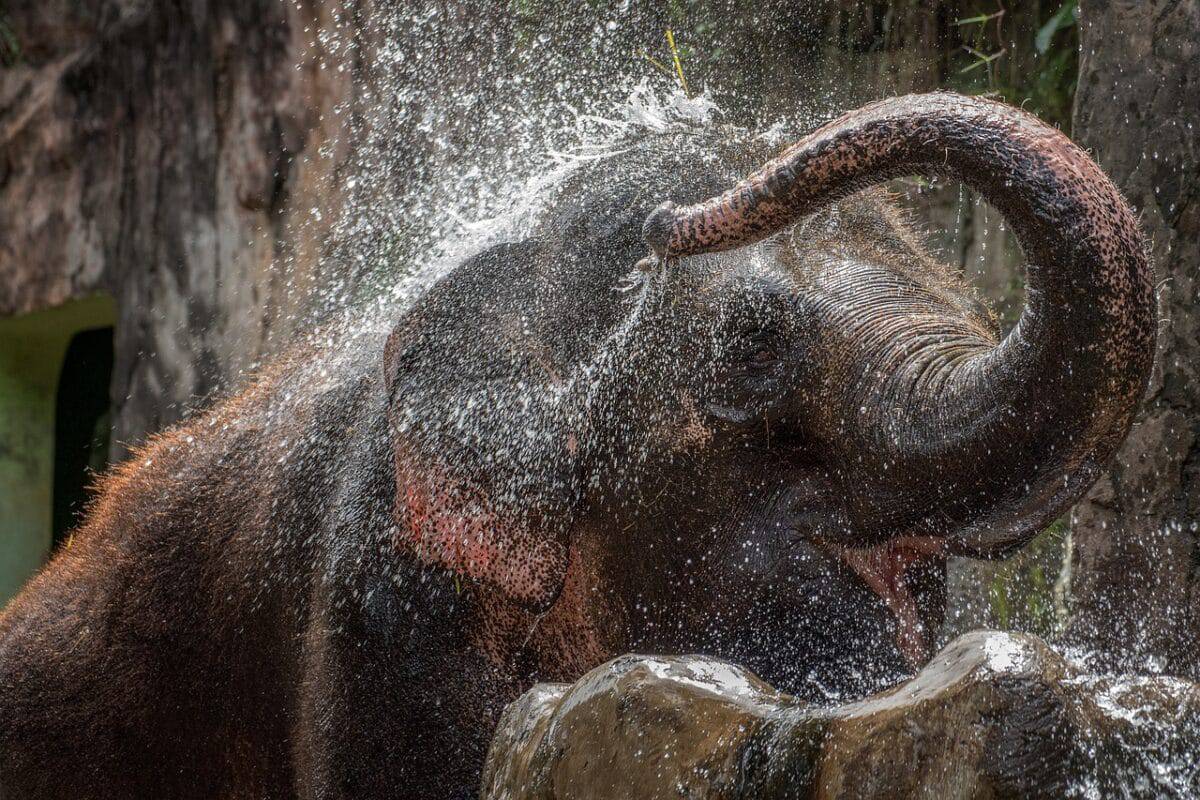
After all, it isn’t strange that elephants love this sugary plant. Just like us humans, elephants have a sweet tooth they need to satisfy from time to time.
Unsurprisingly, they like sugarcane due to its high sugar content, which provides a rich source of energy. Sugarcane is easily digestible and offers a sweet taste that is appealing to elephants.
In the wild, elephants consume a variety of plant materials. Sugarcane’s sweetness and nutritional value make it a preferred choice. This preference can lead them to venture into sugarcane fields or encounters with humans – as seen in the video where an elephant steals it from a truck.
The attraction to sugarcane illustrates the elephants’ natural inclination towards certain foods that meet their dietary needs. But, it also poses challenges in regions where sugarcane is cultivated near their habitats.
The Potential Dangers of Elephants’ Affinity For Sugarcane
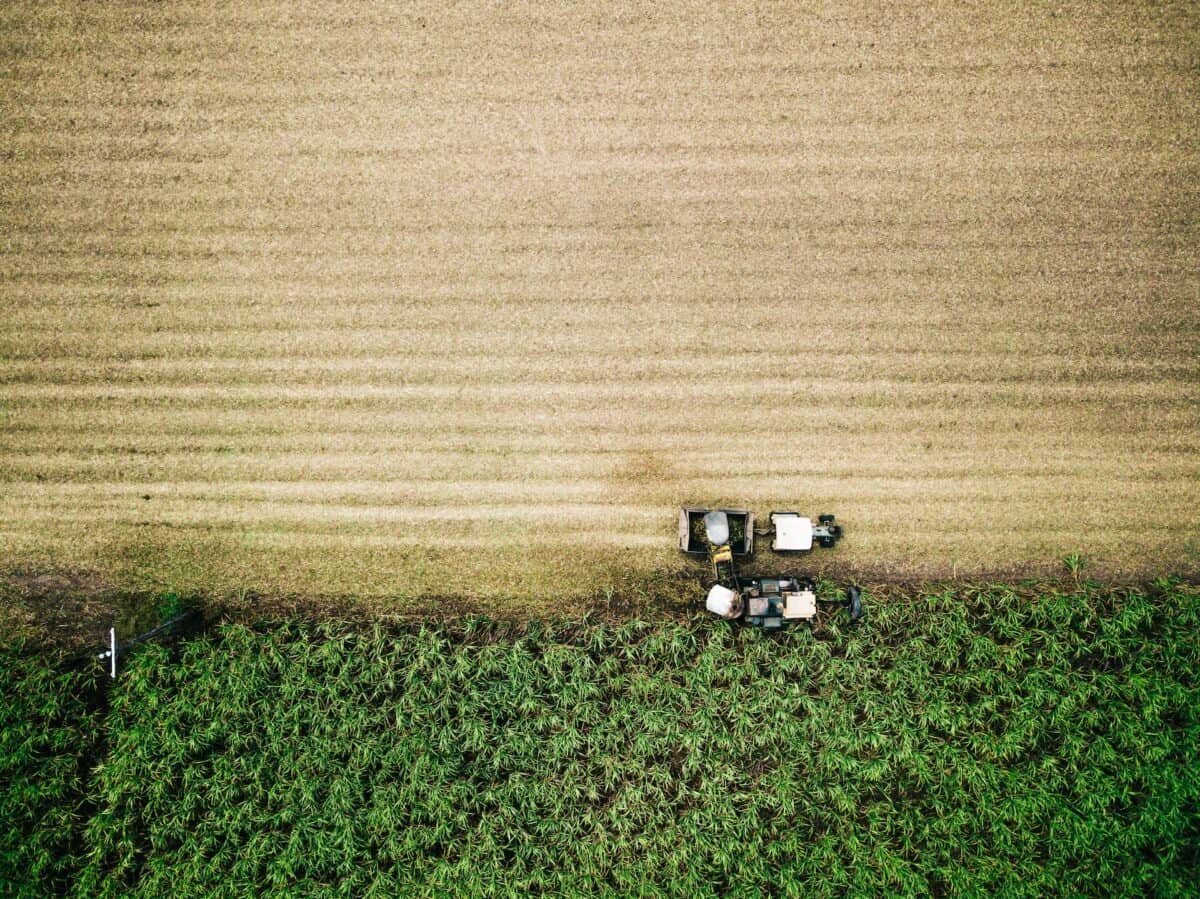
Elephants’ particular affinity for sugarcane has led to significant challenges for sugarcane farmers, especially in regions close to elephant habitats. In Uttar Pradesh, India, the forest department has had to issue alerts to farmers as elephant herds assemble on the edges of jungles, attracted by the ripening sugarcane crop.
This attraction to sugarcane is not merely an issue of crop destruction. It can become a direct threat to farmers. They risk elephants trampling them to death when they guard or forage in their fields. An example of this occurred two years ago when a man was trampled to death by an elephant while he was guarding his crops.
Farmers in affected areas often resort to going to their fields only in groups out of fear of elephant attacks. Proposals have been made to dig trenches to prevent elephants from venturing into human habitats and sugarcane fields. However, these measures are yet to be fully implemented.
The situation highlights the complex interplay between human agriculture and wildlife. A simple dietary preference of a majestic animal can lead to serious human-wildlife conflicts.
You might also like: The First Polar Bear Attack in 30 Years.
Elephant Steals Sugarcane: The Raid
In a remarkable display of intelligence and adaptability, a wild elephant sopped passing trucks to steal sugarcane. The elephant’s actions demonstrate a keen understanding of human behavior and the ability to manipulate it for personal gain.
Considering the elephant’s confidence, we can be pretty sure that this isn’t its first raid. Perhaps it is collecting a toll fee on its turf? Although an unlikely scenario, many animals would be justified in doing so, bearing in mind how much we encroach on their territory.
The event underscores the incredible cognitive abilities of elephants, known for their memory, problem-solving skills, and social intelligence.
This particular elephant’s ability to recognize trucks carrying sugarcane, stop them, and then take what it wants is a testament to its understanding of the human world around it. It’s a fascinating glimpse into how animals can adapt to human environments and even exploit them to their advantage.
However, the elephant that steals sugarcane from the truck could’ve resulted in a much more chaotic scene. With its huge size, it could’ve easily caused a serious traffic accident, posing a danger both to itself and the driver.
Do Elephants Have Dietary Preferences?
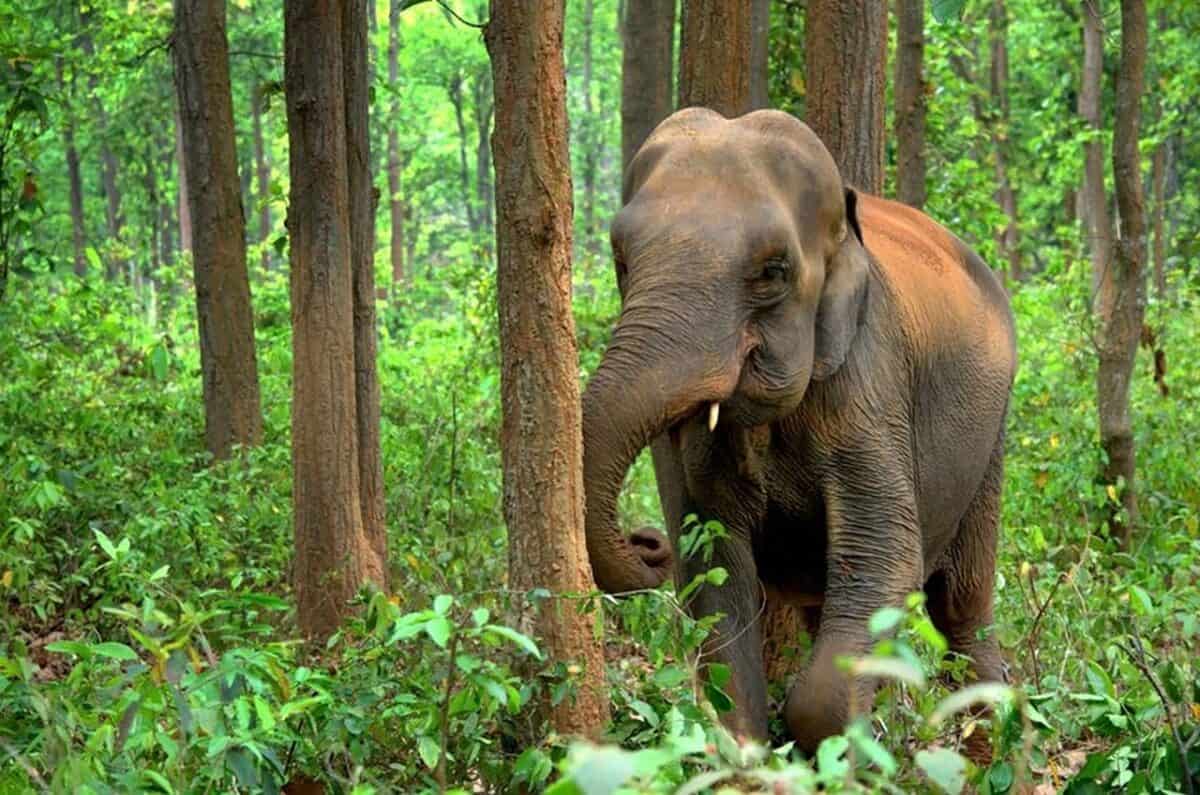
A recent study has shed new light on the dietary habits of elephants. The study reveals that they may have preferences in what they eat, much like humans.
Researchers in Kenya used innovative DNA metabarcoding techniques to research this topic. The findings indicate that elephants vary their diets based on availability, preferences, and physiological needs.
For instance, a pregnant elephant may have different cravings and nutritional requirements at various stages of her pregnancy. The study also discovered that individual elephants within a group do not always eat the same plants simultaneously, allowing for enough plants to be available for all.
Interestingly, the study found that dietary differences among individual elephants were often far greater than previously assumed, even among family members foraging together.
The research emphasizes the importance of understanding the foraging behavior of elephants to develop conservation approaches that keep them satisfied. Elephants’ dietary habits are clearly complex, underlining the need for diverse dietary resources for wildlife populations to prosper.
Foraging Behaviors of Elephants
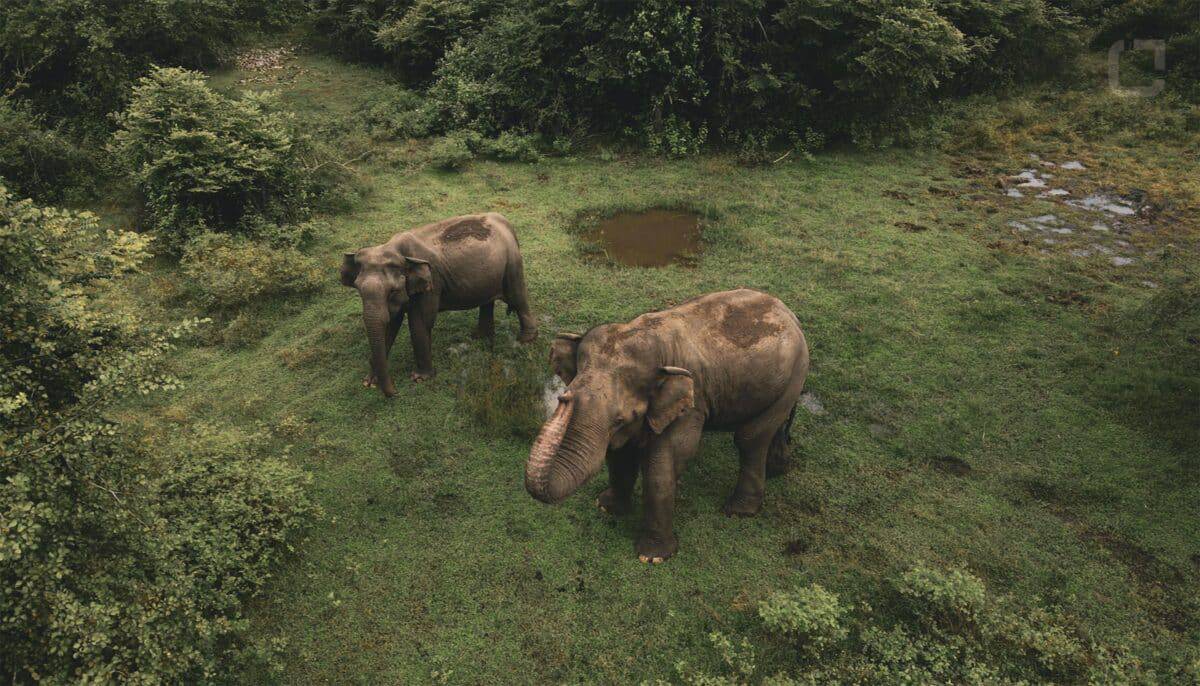
Elephants show both complex and adaptive foraging behavior. Their large size requires them to eat substantial amounts of food daily, often spending up to 16 hours foraging. Elephants use their highly sensitive trunk to find and grasp food, displaying a remarkable ability to select specific plants and parts.
They travel impressively long distances in search of food. As a result, their foraging patterns can have significant impacts on the ecosystems they inhabit. The issues that they pose to sugarcane farmers perfectly illustrate this.
Understanding the foraging behavior of elephants is essential for conservation efforts. It provides insights into their dietary needs and preferences, helping to ensure that their habitats are managed in ways that support their complex dietary requirements.
Another proof of elephants’ intelligence: Elephant Says Thank You After Crossing Road.
Elephant Steals Sugar Cane: Conclusion
The multifaceted relationship between elephants and sugarcane reveals much about the nature of these majestic creatures and the complex interplay between wildlife and human agriculture.
From their innate sweet tooth that draws them to the high sugar content of sugarcane to the remarkable intelligence displayed in their interactions with humans, elephants continue to fascinate and challenge our understanding.
However, this affinity also underscores serious challenges, such as the threats to farmers and the potential for human-wildlife conflicts.
Innovative solutions, such as the proposed trenches and informed conservation efforts, are needed to balance the elephants’ natural behaviors with human needs and safety. It’s a delicate balance that requires ongoing attention, research, and compassion.
Thank you for reading this article about an elephant that steals sugarcane! Keep exploring the sneaky antics of animals with us:
- Did You Know That Wolves Like Blueberries?
- The Crucial Roles Dogs Played During WW2
- Man Fights Kangaroo to Save His Dog’s Life

